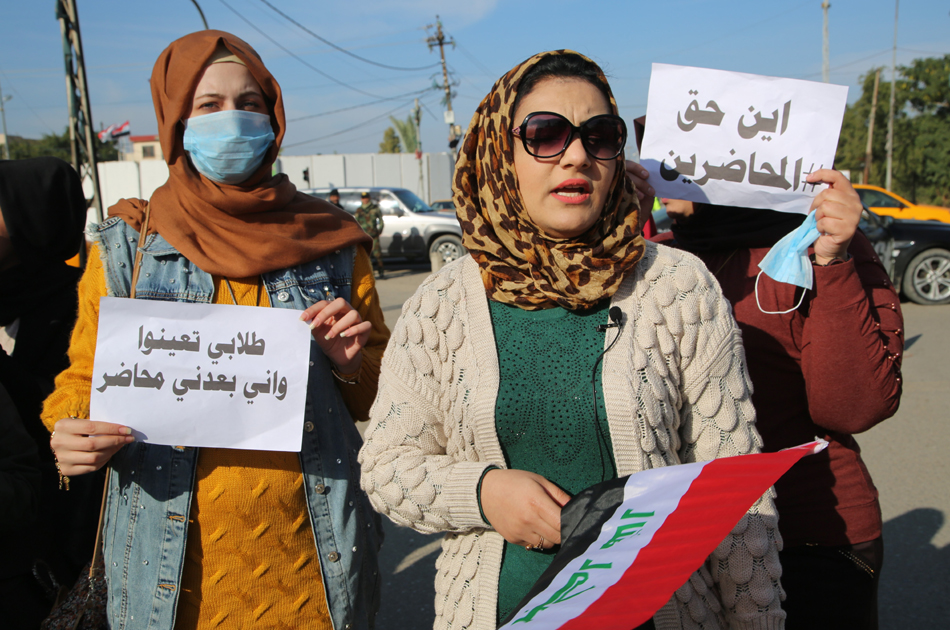Directorate general of education in Kirkuk has decided to receive dossiers of 10,000 lecturers teaching on temporary bases in Kirkuk schools in order to be employed per contracts by the government.
The decision has been taken by the Iraqi government in 2021 budget and the process to start officially in Kirkuk on May 23rd.
Naziha al-Sa’di, media manager of Kirkuk education said a mechanism to receive the files of the lecturers downtown and in the suburbs was discussed on Tuesday in presence of Teachers union and Kirkuk education local officials.
“We will announce a schedule on Sunday in order to avoid crowds,” al-Sa’di said.
The process goes via legal and administrative committee to audit the documents, she added.
Temporary lecturers whom are mainly post-graduates with diploma and bachelor degrees will receive 250,000 Iraqi Dinars ($170) a month for teaching at primary and secondary schools as contract-based teachers. On the other hand, fully employed teachers receive higher salaries, minimum double, and entitled of almost 80% pension salary following a 25-year service.
Teachers used to attend schools four hours a day on average ahead of Covid-19 pandemic which brought in online education for the first time in the history of education in Iraq.
Iraq’s education infrastructure is in ruins in many parts of the country; one in every two schools is damaged and needs rehabilitation, a report by UNICEF about education in Iraq says.
A number of schools operate in multiple shifts in an attempt to accommodate as many students as possible, squeezing the little learning time that children have.
Moreover, recent growth in the total number of teachers, the number and share of qualified teachers in Iraq has decreased at all educational levels, with the exception of pre-school, the UNICEF reports.
The young lecturers are thrilled of employment, a dream finally come true as the public sector is more trusted in Iraq in comparison to private sector employment.
Halala Ahmed is a graduate of college of education who is lecturing since four years. “We hope education (of Kirkuk) accelerates the process because we are waiting since years to be employed permanently.”
“We have already delivered our files and the government confirmed our employment yet still we are concerned of the process (of employment) being slow,” she added.
“For the last few years, we were living in anxiety and want to be employed by contract or permanently as staff of ministry of education.”





